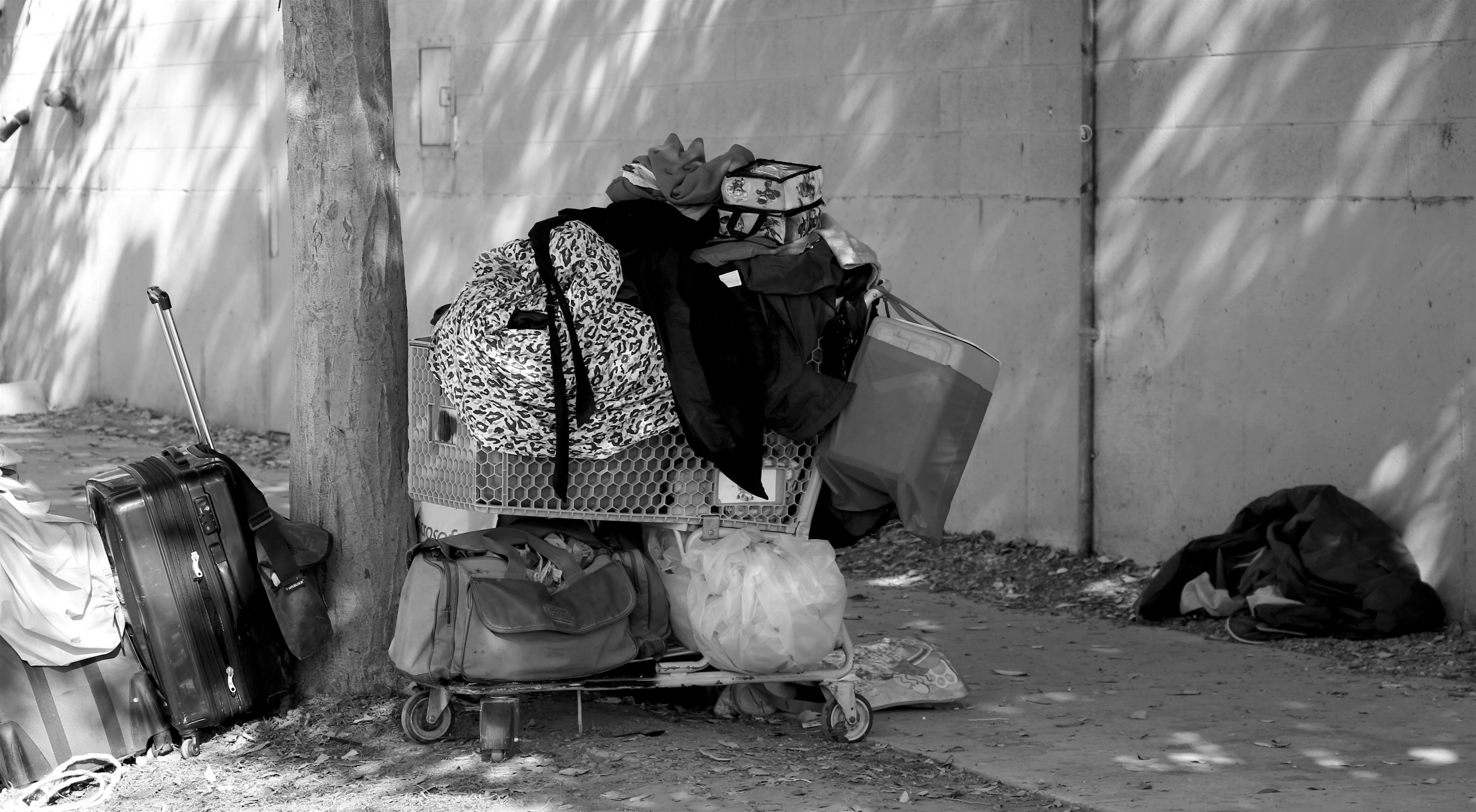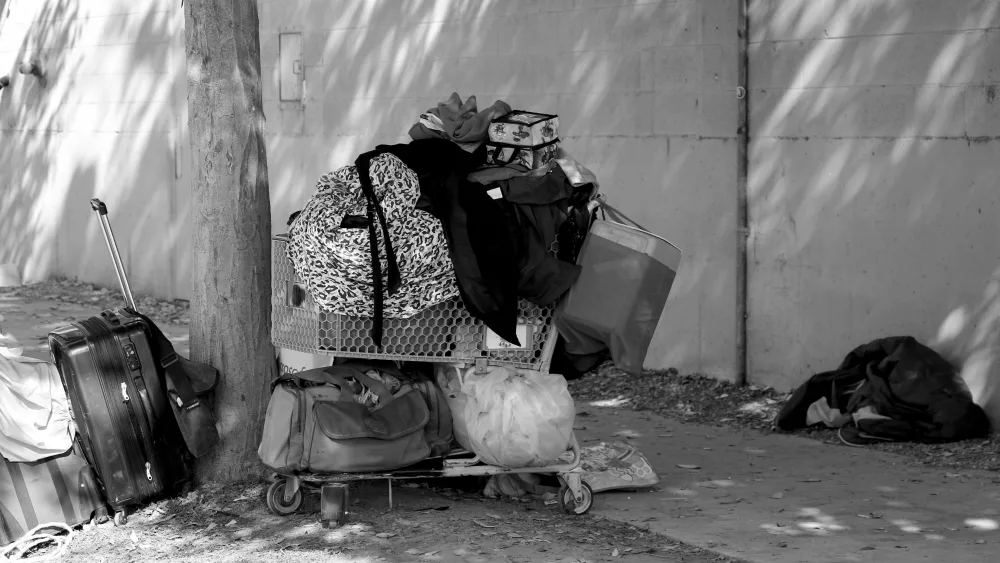
The following article was adapted from a segment on The Ari Hoffman Show. Listen weekdays 3-6 PM Pacific on Talk Radio 570 KVI, KVI.com, the KVI App, and wherever you get your podcasts.
A heart-wrenching story out of Lacey, Washington, where a puppy overdosed on fentanyl and was saved by first responders, is now revealing far more than a near-death experience for an innocent animal. It’s exposing just how deep the drug and homelessness crisis runs, and how little accountability our leaders are willing to take.
"The Seattle Times says, Trump's 'end to data-proven solutions.' Where's the data that proves these work? Would you like me to prove to you, @SeattleTimes, from your own article how your data-proven solutions don't work? Skip down one paragraph. 'Homelessness is at a record high… pic.twitter.com/H8Az7vuli3
— Ari Hoffman 🎗 (@thehoffather) July 29, 2025
Earlier this month, firefighters in Lacey discovered a puppy unresponsive inside a car where fentanyl had been found. Thanks to their quick action and a dose of Narcan, the pup named Espresso survived. Espresso has since been transferred to the Seattle Humane Society and, according to the organization, is now healthy and pending adoption.
But the real story begins with the question: Who was responsible for the situation that nearly killed this dog?
Initially, details were scarce. There was no call for public help, no media push to find Espresso a new home, an unusual silence when it comes to rescued animals. Now, thanks to KOMO News, we have confirmation: the puppy’s former owner is scheduled to appear in court next week. That fact alone raises troubling questions about why the media and public officials remained tight-lipped for so long.
It also underscores a far more pressing issue, one that continues to be ignored by local leadership. This was no random incident. It’s part of a much larger pattern of drug use, homelessness, and lack of accountability that defines life in many parts of Washington state.
The root of the problem isn’t just addiction; it’s a political culture addicted to failed solutions. Instead of addressing mental health crises, substance abuse, and public safety head-on, officials continue to pour billions into what critics call “Homeless Inc.,” a tangled web of nonprofits and public programs that thrive on taxpayer dollars but produce few results.
Local politicians aren’t just ignoring the problem; they’re actively defending the systems that make it worse.
Case in point: the backlash to a new executive order signed last week by President Donald Trump, which challenges the so-called “Housing First” model. Under this approach, people suffering from addiction or mental illness are given housing with no strings attached—no requirement to get clean, seek treatment, or even stay crime-free. Supporters call it compassionate. But if it works, why does the crisis keep getting worse?
Trump’s executive order seeks to end federal funding for these programs, instead prioritizing treatment-first approaches and accountability. Unsurprisingly, Seattle politicians are furious.
The Seattle Times, in a recent article, called the order a move to “punish homeless people” and undermine “data-proven solutions.” But even in the same piece, the Times admits homelessness is at record highs, both locally and nationally. King County alone reported nearly 17,000 people experiencing homelessness in 2024, more than five times the number that triggered the original “crisis” declaration years ago.
If the data really proves these programs are working, why are the numbers going up? Why are the streets more dangerous? Why are people, like the man who nearly wandered into traffic on 4th Avenue during a fentanyl-induced stupor, left untreated and unsheltered?
And why does the Seattle political class keep funding this failure with your tax dollars?
Governor Bob Ferguson, in response to the order, accused the Trump administration of “playing politics with people’s lives.” But his own record, stacked with reapproved failed policies and Washington’s largest-ever tax increase, says otherwise.
The outrage from city leaders like Seattle Mayor Bruce Harrell is equally hollow. Harrell insists more housing vouchers and HUD investments are the answer, despite years of evidence that these tools alone haven’t moved the needle.
Even their own metrics betray them. After King County moved roughly 1,000 homeless individuals into hotel rooms during the pandemic, the Times celebrated a reduction in ER visits. What didn’t they say? Overdose deaths in those same units increased. That’s not success, that’s spin.
The truth is, Washington’s homelessness strategy has become a massive taxpayer-funded industry. Billions are poured into nonprofits, consultants, and outreach groups, while neighborhoods remain dangerous and filthy, addicts go untreated, and overdose numbers skyrocket. The only thing that’s growing is the bureaucracy that feeds off this crisis.
Want to prove critics wrong? Start with a simple challenge: audit the entire system. Audit King County’s homelessness programs. Audit Seattle’s. Audit every dollar spent by the state. California did, and the results were damning. Billions wasted, no measurable improvement, and zero accountability.
Espresso the puppy didn’t choose to overdose on fentanyl. But someone allowed that to happen. And until we stop enabling the systems that let people live and die on the streets in the name of “compassion,” we’re going to keep getting more of the same.







